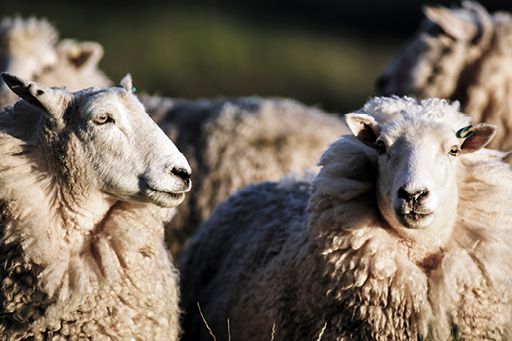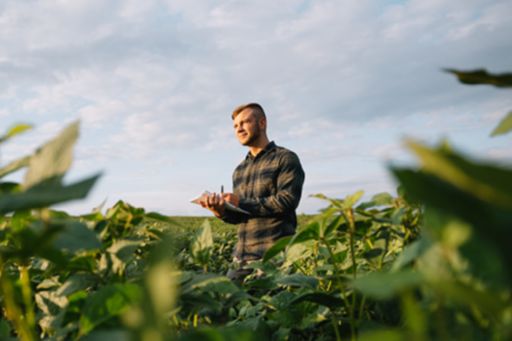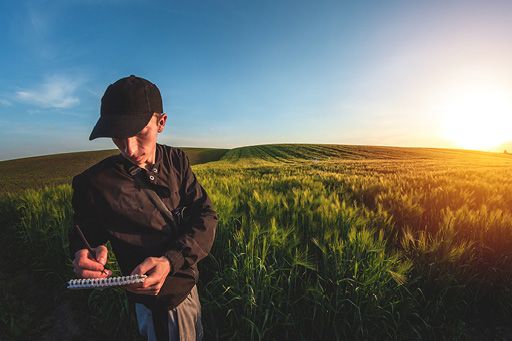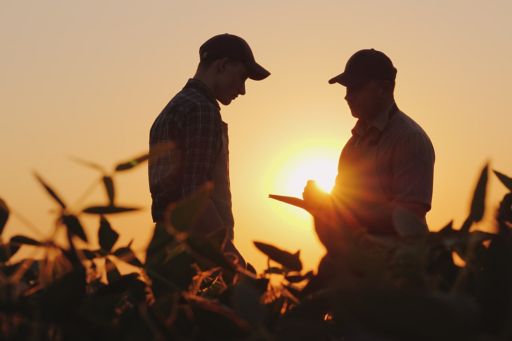Week in Review
[07 October 2021]
This week as dairy prices and payouts remain strong, eyes start to peer into the future with an anticipated milk production growth in China and other competing markets. Beef exports also set new records while meat processors invest in decarbonisation. We also hear of labour challenges continuing, with a new visa providing relief for some rural communities while Vets ‘give up’ after being able to access only two MIQ slots so far, despite the 50 border class exemptions.
Article of the Week
This week new Propagate Manager Paulette Elliott shares her first Field Notes Article on the topic of alternative proteins, following on from last weeks ‘To meat, or not to meat’ vodcast.
Paulette’s article “Would you like a side of water with that” can be accessed here.
Previous issues
To read previous editions of Field Notes please click here.
Spotlight Stories
International Spotlight:

First-ever Food Systems Summit sees billions in pledges & plenty of disagreements [1 October, AgFunderNews]
The first-ever virtual UN Food Systems Summit hosted 51,000 people from 193 countries and addressed goals to make global food production and consumption healthier, more equitable, and more environmentally friendly. A host of coalitions and initiatives were announced, and organisations including USAID and the Bill and Melinda Gates Foundation pledged billions of dollars to help achieve the goals. However, hundreds of civil society groups and grassroots organisations boycotted the summit over concerns around corporate influence and held counter-events to highlight the importance of smallholder farmers.
Tag: International, Policy and Regulation
Wool Spotlight

Allbirds, maker of the wool sneaker, headed for a Nasdaq listing [03 October, Stuff]
The pioneering woollen shoe company, Allbirds, has experienced quick and strong growth due to an increase in consumer demand for sustainable products and is now offering investors shares through a public offering on Wall Street’s Nasdaq market. Co-founder Tim Brown, who grew up in Wellington, says the company is estimated to be worth US$1.7 billion (NZ$2.5b) and will be the first ever “sustainable public equity offering”, vetted not only by analysts and the investment banking community, but environmentalists as well.
Tag: Wool, International
This Week's Headlines

Global food firms and the SDGs – Fonterra, Zespri ranked [4 October, Food Ticker]
The World Benchmarking Alliance researched and ranked 350 leading food companies on their contributions to transforming the global food system, concluding that, while pressure on the food sector is mounting, many companies aren’t contributing to achieving the Sustainable Development Goals. Fonterra Co-operative Group featured number nine on the list, while Zespri sat at 69. The research said only 26 of the cohort were found to be working to reduce greenhouse gas emissions in line with the Paris Agreement, and 123 companies had not set targets to reduce greenhouse gas emissions.
Tag: International, Environment & Emissions

McDonald's targets net zero emissions by 2050, from meat to energy [5 October, Reuters]
McDonald's Corporation has set a new target to cut global greenhouse gas emissions to net zero by 2050, from the beef in its burgers to the light bulbs in its restaurants. The burger chain said it aims to lower absolute emissions by about a third for both its suppliers and its nearly 40,000 company-run and franchised restaurants around the world by 2030. "We're trying to send a signal to our partners, to our investors, to our suppliers, to other brands in the global community, to policymakers, that we share that vision for 2050," McDonald's chief sustainability officer Jenny McColloch said.
Tag: International, Environment & Emissions

UN looks to address ‘unprecedented catastrophic levels’ of food insecurity [4 October, UN News]
The United Nations has convened a high-level event, calling for international action to address the unprecedented catastrophic levels of acute food insecurity the world currently faces. Reportedly, around US$6.6 billion is urgently needed to support 41 million in danger of sliding into famine. Close to half a million people are experiencing famine-like conditions (IPC 5) and 41 million people face emergency levels of food insecurity (IPC 4). In addition, millions more are experiencing crisis levels of acute food insecurity (IPC 3) and are at high risk of rapid deterioration.
Tag: International, Food Security
Top stories
Sweet success for researchers seeking cause of Unique Mānuka Factor [30 September, Food Ticker]
New research has discovered the process mānuka flowers go through to create the Unique Mānuka Factor in honey and this could reportedly help New Zealand producers understand variations of the honey. University of Waikato associate professor Mike Clearwater said, “one of the big issues the honey industry faces is unpredictable variation in the yield of mānuka honey and its levels of UMF. This research is relevant because it helps us understand how variation in the environment and plant genetics contribute to variation in the honey.”
Tag: Apiculture, Research & Development
Seeka's $20m investment in packline, coolstore under way near Te Puke [30 September, NZ Herald]
Seeka plans to invest in a new automated packline and a high-efficiency cool store near Te Puke, operational for next year's kiwifruit season. A new eight-lane machine including camera grading and packing automation will replace its existing 25-year-old 10-lane machine, and an additional 650,000 static trays of cool storage will be constructed. "This investment gives us the opportunity to support our growing kiwifruit base by providing our core service of packing cool storage,” said general manager of grower services and marketing Jim Smith.
Tag: Horticulture
'Soaring' demand for beef drives 26 per cent increase in NZ red meat exports in August [30 September, Voxy]
According to an analysis by the Meat Industry Association (MIA), NZ’s red meat exports increased by 26% in August compared to the previous year, with overall exports reaching NZ$650 million. Exports to the top three beef markets increased, with China up 89% to NZ$117m, the United States up 31% to NZ$102m and Japan up 31% to NZ$15 million.
MIA chief executive Sirma Karapeeva said herd rebuilding in Australia and export restrictions in Argentina have contributed to tight global beef supplies.
Tag: Red Meat, Trade & Exports
Beef exports boom [1 October, Farmers Weekly]
Meat Industry Association (MIA) figures show demand for beef has underpinned a 26% increase in NZ red meat exports for August, worth NZ$650m, a 39% increase on August last year. Exports to the UK totalled 977 tonnes, representing a drop of 52% compared to a year earlier, however, exports to China and the United States increased. MIA chief executive Sirma Karapeeva says, beef volumes were 71% higher but while sheep volumes fell 7%, prices were 10% higher.
Tag: Beef, Trade & Exports
Tatua earns over $10/kg, pays $9.25 [1 October, Farmers Weekly]
Tatua Co-operative has achieved record earnings of NZ$10.43/kg milksolids in the 2020-21 dairy season and expect to pay supplying shareholders a total of NZ$9.25/kg. The co-op directors decided to retain NZ$1.18/kg, which amounts to $18million before tax as the record earnings improved by 5% on NZ$9.96 in the previous financial year. The directors said the retention for reinvestment was set to ensure continued sustainable investment in the business and a level of debt considered sensible in the continued uncertain economic and global trade environment.
Tag: Dairy, Trade & Exports
New visa some relief for rural communities [30 September, Rural News Group]
The NZ Government has announced that its one-off 2021 Resident Visa will allow approximately 9,000 primary industry workers to enter the country, relieving some of the stress faced in our rural communities says Rural Women New Zealand board member Sharron Davie-Martin. “The 2021 Resident Visa is a positive move by the Government – we now look forward to further progress on long-term solutions for a sustainable primary industry workforce,” Davie-Martin adds.
Tag: Farmers & Producers, Rural Communities
Fonterra’s strategy paints bold [4 October, Farmers Weekly]
In its annual results, Fonterra Co-operative Group released that its areas of focus will be making the most of New Zealand milk, investing in dairy sustainability, innovation science and nutrition. Chief executive Miles Hurrell says as Covid-19 has made consumers more conscious of the nutritional qualities of food, they “want our sustainably produced, high-quality nutritious milk.” As a result, Fonterra Co-operative has proposed to allow a flexible shareholding structure and allow additional farmers to become shareholders – sharemilkers, contract milkers and lessors.
Tag: Dairy, Farmers & Producers
Meat processors look to decarbonise [4 October, Farmers Weekly]
Three of New Zealand’s largest meat companies have received funding to upgrade their technology with the aim of reducing their reliance on coal and cutting carbon emissions. Alliance Group announced its investment in three South Island plants, ANZCO to its Canterbury works and Silver Fern Farms (SFF) to its Pareora works. It is reported that the investment by Alliance Group and SFF will contribute to their goal of ending the use of coal within ten years, and ANZCO’s investment will cut coal use by 17%.
Tag: Red Meat, Environment & Emissions
The future of food systems [4 October, Farmers Weekly]
According to Harper Adams University chair in sustainable beef production Jude Capper, the amount of land we have to produce protein will not change, and we have limited resources that must be used efficiently to ensure the future of food security. He says as the global population rises and becomes more affluent, more net protein is needed to match an increase in demand of almost 100% by 2050. Capper adds that it isn’t about producing a certain amount of food per amount of land or per amount of greenhouse gas, but it’s about the limiting nutrients and the amount of protein produced.
Tag: Farming Systems, Red Meat, Environment & Emissions
Vets give up! [5 October, Rural News Group]
According to NZ Veterinary Association chief executive Kevin Bryant, qualified overseas veterinarians are giving up on plans to work in New Zealand as securing spots in MIQ is proving difficult, with only two veterinarians arriving in the country, two others on their way, and six awaiting MIQ spots out of the 50 total veterinarians allowed in. It is reported that the delay in the arrival of overseas vets is exacerbating the situation in vet clinics around the country, with a 50% of the shortage in rural areas.
Tag: Animal Welfare, Policy and Regulation, Covid-19
Blueberry consumption tipped to skyrocket [1 October, Fruitnet]
Agricultural banking specialist Rabobank has indicated global fresh blueberry exports are likely to expand steadily during the next few years as growing regions continue to diversify around the globe. “We expect global exports in 2025/26 to reach close to 900,000 tonnes, with over 70% coming from the top-five exporting countries: Peru, Chile, Canada, Mexico, and Spain/Morocco,” said senior analyst David Magaña. As the market becomes increasingly competitive and consumers more demanding, consistent quality is vital to seize the growth opportunities, Magaña adds.
Tag: International, Horticulture, Trade & Exports
New Zealand well-placed to ride regenerative agriculture wave - Beef and Lamb NZ [5 October, Voxy]
According to research commissioned by Beef + Lamb NZ and NZ Winegrowers, NZ has a significant opportunity to position itself in taking advantage of the global regenerative agriculture trend. B+LNZ chief executive Sam McIvor says, "we believe the majority of New Zealand’s sheep and beef farming practices naturally align with key pillars of regenerative products or production” due to “our farming systems being so different from conventional agriculture.” The research also reveals consumers may be willing to pay more for regeneratively-produced food.
Tag: Farming Systems, Environment & Emissions, Red Meat
China's milk boom bad news [06 October, Rural News Group]
According to RaboResearch dairy analyst Emma Higgins, milk supply is outpacing demand in China as the forced closure of many food outlets due to the global pandemic means there is a build-up of more milk inventory. Higgins says NZ dairy exports to China currently remain at record high levels, keeping the farmgate milk price strong. However, she believes things could change in the coming months due to China destocking and reducing its inventory in the coming six to eight months.
Tag: International, Dairy
Index left unchanged at latest Global Dairy Trade auction [06 October, NZ Herald]
Overall dairy prices have remained steady in the latest Global Dairy Trade auction with no change across the board, following three consecutive increases. Whole milk powder prices decreased by 0.4%, and skim milk powder, cheddar and butter milk powder all increased by 0.5%, 0.7% and 9.7%, respectively. Additionally, a total of 28,667 MT of product was sold, an increase of over 4000 MT from the previous event, attracting 126 successful bidders over 15 rounds.
Tag: Dairy, Trade & Exports
Ngāi Tahu to run marine farms after Treaty settlement [5 October, NZ Herald]
An aquaculture agreement was signed between Te Rūnanga o Ngāi Tahu, Te Ohu Kaimoana, and the Government, allowing Ngāi Tahu to undertake marine farming in Murihiku, South Island. Upoko o Awarua Tā Tipene O'Regan says aquaculture complements New Zealand's wild fisheries, and he hopes potential projects, such as offshore salmon, seaweed or native species farming, will lead to new jobs for Southlanders and others around Aotearoa. “This growing industry could help to boost regions grappling with the challenges of Covid-19 and the loss of international tourism,” O’Regan says.
Tag: Fisheries, Policy and Regulation
Cultivated meat offers £2.1bn economy boost, claims start-up [05 October, Food Navigator]
A new report commissioned by start-up Ivy Farm Technologies predicts that the cultivated meat sector could add GBP£1.1 billion-£2.1 billion to the UK economy by 2030, urging the government to move quickly. Researchers says the industry could also generate £266-£523 million in tax revenues in 2030 and support 9,200-16,500 jobs. However, the report made two big assumptions, the first being that the UK regulator Foods Standards Agency approves the sale of cultivated meat in the UK by the end of next year, and the second being that consumers will embrace and eat a product they’ve yet to see or try.
Tag: International, Alternative Proteins
Get in touch
| Audit – Auckland Ian Proudfoot 09 367 5882 iproudfoot@kpmg.co.nz |
Management Consulting – Wellington Justine Fitzmaurice 04 816 4845 jfitzmaurice@kpmg.co.nz |
Agri-Food – Auckland Jack Keeys 09 363 3502 jkeeys@kpmg.co.nz |
Private Enterprise – Hamilton Hamish McDonald 07 858 6519 hamishmcdonald@kpmg.co.nz |
| Agri-Food – Auckland Andrew Watene 09 367 5969 awatene@kpmg.co.nz |
Consultant – South Island Genevieve Steven 03 307 0761 gsteven@kpmg.co.nz |
Farm Enterprise – South Island |
Field Notes Administrator |




